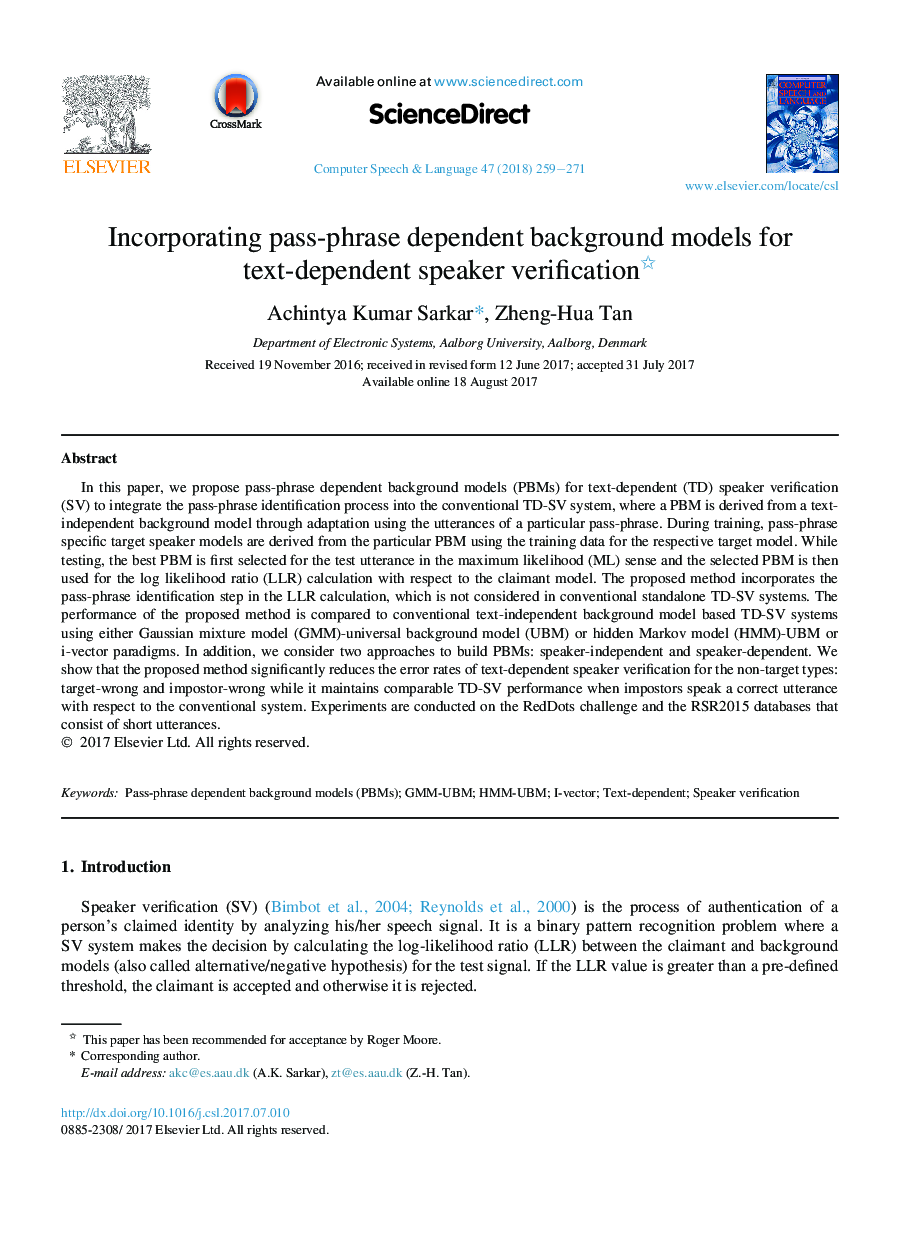| کد مقاله | کد نشریه | سال انتشار | مقاله انگلیسی | نسخه تمام متن |
|---|---|---|---|---|
| 4973649 | 1451680 | 2018 | 13 صفحه PDF | دانلود رایگان |
- Propose pass-phrase dependent background model (PBM) for in text-dependent speaker verification (SV).
- Consider two approaches to build PBMs: speaker independent and dependent.
- PBM significantly reduces the error rates of TD-SV for target- and impostor-wrong.
- Performance is demonstrated on GMM-UBM, HMM-UBM and i-vector paradigms.
- Conduct experiments on the RedDots and RSR2015 databases consisting of short utterances.
In this paper, we propose pass-phrase dependent background models (PBMs) for text-dependent (TD) speaker verification (SV) to integrate the pass-phrase identification process into the conventional TD-SV system, where a PBM is derived from a text-independent background model through adaptation using the utterances of a particular pass-phrase. During training, pass-phrase specific target speaker models are derived from the particular PBM using the training data for the respective target model. While testing, the best PBM is first selected for the test utterance in the maximum likelihood (ML) sense and the selected PBM is then used for the log likelihood ratio (LLR) calculation with respect to the claimant model. The proposed method incorporates the pass-phrase identification step in the LLR calculation, which is not considered in conventional standalone TD-SV systems. The performance of the proposed method is compared to conventional text-independent background model based TD-SV systems using either Gaussian mixture model (GMM)-universal background model (UBM) or hidden Markov model (HMM)-UBM or i-vector paradigms. In addition, we consider two approaches to build PBMs: speaker-independent and speaker-dependent. We show that the proposed method significantly reduces the error rates of text-dependent speaker verification for the non-target types: target-wrong and impostor-wrong while it maintains comparable TD-SV performance when impostors speak a correct utterance with respect to the conventional system. Experiments are conducted on the RedDots challenge and the RSR2015 databases that consist of short utterances.
Journal: Computer Speech & Language - Volume 47, January 2018, Pages 259-271
